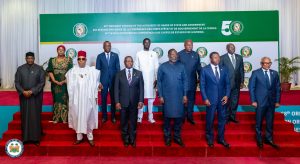Lagos, Nigeria – Former presidential candidate Peter Obi has voiced strong dismay at the ongoing disregard for court orders in a protracted property dispute involving Next Foods Limited in Ikeja GRA, Lagos. In a statement posted on the social media platform X, Obi highlighted the “brazen impunity” of an individual who has unlawfully entered the premises, despite multiple pending legal applications, including committal proceedings.
Obi, who signed the post personally, emphasised a fundamental legal principle: “It is a well-established principle of law, and indeed of civil society, that once parties have submitted their grievances to the judiciary, they are duty-bound to maintain the status quo and allow the court to determine the issues before it. Any deviation from this principle not only undermines the justice system but also sets a dangerous precedent for lawlessness.” He further revealed that he and his younger brother, Ndibe Obi – the chairman of Next Limited – have made repeated attempts to contact the woman claiming ownership of the property for an amicable resolution, but she has remained “evasive and inaccessible.”
The controversy traces back to June 2025, when Obi alleged that the property was illegally demolished without a court order or proper notice. According to Obi, a trespasser misled the court into granting an unjust possession order, leading to the destruction of structures on the site. In a follow-up statement later that month, he reported that the same individual was erecting a fence under cover of night, seemingly to divide the land, which he described as a “blatant act of trespass.” A video accompanying Obi’s latest post shows him at the site, pointing out ongoing clearance of debris and construction activities, including bulldozers operating despite a court-issued stop-work order. He questioned the effectiveness of Nigeria’s judicial system, noting that such work often occurs on weekends to evade scrutiny.
The dispute has sparked accusations of political motivations, with some supporters of Obi suggesting involvement from the Lagos State government or federal authorities under President Bola Tinubu. Replies to Obi’s post on X echoed these sentiments, with one user claiming the incident reflects “systemic rot” inflicted by the ruling party. Others called for judicial reforms, anticipating Obi’s potential leadership in 2027 to address such issues.
However, counter-claims have emerged, portraying the matter as a private land dispute rather than state-sponsored persecution. Lagos State officials have denied any role in the demolition, asserting that no government agency was involved. Critics, including some online commentators, have accused Obi of misleading the public to incite ethnic tensions, pointing out that company records show him as a majority stakeholder in Next Foods Limited, suggesting the property is his own rather than solely his brother’s. One reply to the post urged Obi to pursue police intervention instead of social media appeals, labelling his approach as “gaslighting.”
Adding to the complexity, investigations have linked Mayomi Afekhuai, a legal representative for the claimant, to previous land-grabbing incidents. In 2021, Afekhuai was reportedly involved in the forceful takeover of property from an 88-year-old woman, raising questions about the legitimacy of the current claim. Next Foods Limited has challenged the claimant’s 2021 Certificate of Occupancy, citing their own 2011 title and seeking to join the ongoing lawsuit.
As the case remains before the courts, Obi’s latest intervention underscores broader concerns about the rule of law in Nigeria. Legal experts stress that maintaining the status quo during litigation is essential to prevent anarchy, yet enforcement appears lacking in this high-profile matter. Neither the claimant nor Lagos State authorities have responded to the most recent allegations at the time of writing.
This ongoing saga highlights the challenges of property rights in urban Nigeria, where disputes often intersect with politics and allegations of corruption. Observers await a judicial resolution that could set precedents for similar cases across the country.






